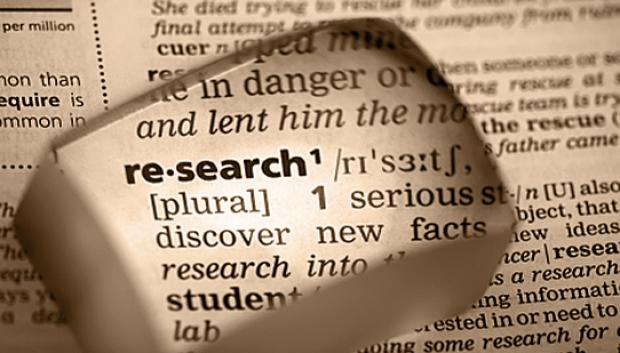As a historical fiction writer, I have to do a fair amount of research.
What I write is based on facts more so than, say, sci-fi, so I have to get as much of history right as I can. Because, believe me, if there is one historical inaccuracy, SOMEONE will notice and if they aren't really nice, they'll not like you very much for it.
Also, if you add a nice little historical bit like a type of food or a certain way something was done, it just adds...something to the story. Not only does it make the book more believable, but it just adds a nice touch.
Research is important to other genres of writing as well, but I won't get into that as I'm primarily a historical fiction writer.
So how do I research?
In all reality, I would really love to have someone else do my research for me, even though I love history. I really kind of don't like research.
So, for me, I have a fairly wide knowledge of history by reading it in other works of fiction. For the most part, the only books I read are historicals.
Next, once I decide what time period my new book is set in, I do general research on everything in the century. And I mean everything like food, clothing, customs, entertainment, and daily ways of life.
Then, as I'm writing, I look up specific things that I need to add to my story.
And, there you go! That's about how I do my research.
If you're a writer, how do you research and what do you research?
And, for my lovely readers, do you notice when the author did a lot of research when you read? How?


Great post!
ReplyDeleteWhen I do research (for myself, or even for someone else), it is pretty much the same way as what you described.
When I'm reading, I like for the historical details to be interwoven with the story and to not be distracting. I have read some books where the authors clearly did a great deal of research but then packed it all into the book, leaving little room for character development or for the story itself. A good writer needs to know what to include and what to leave out, even if it means cutting some facts that they were really interested in.
I do love to find historical details in the books I read, but I prefer for them to really contribute to what's happening in the story.
Thanks, Cortney!
DeleteOne book in which I particularly noticed detail that was spread about very well was It Happened At the Fair by Deeanne Gist. It was lovely. :)
This comment has been removed by the author.
ReplyDeleteI usually don't notice if they did a lot of research until after I finish reading (because I am lost in the story) unless they let the research overcome the story. However, I do notice when an author has not researched.
ReplyDeleteThanks for stopping by!
DeleteAnd, yes, I agree. I don't like it when the author hasn't researched or when there's far too much.
Good post. I do like writers that did a decent amount of research on whatever they are writing about (though sometimes if they put in too much it can read more like a textbook!).
ReplyDeleteI like researching - lots of times I'll go looking for some sort of fact or thing, and then end up spending like an hour going to read about other stuff that catches my eye while I'm doing it.
Thanks for stopping by, Nathan!
DeleteI don't like it when fictional books seem like textbooks. :)
And a lot of people either love or hate research, you're one of the lucky people who likes it. I get so mad when I can't find what I'm looking for. :)